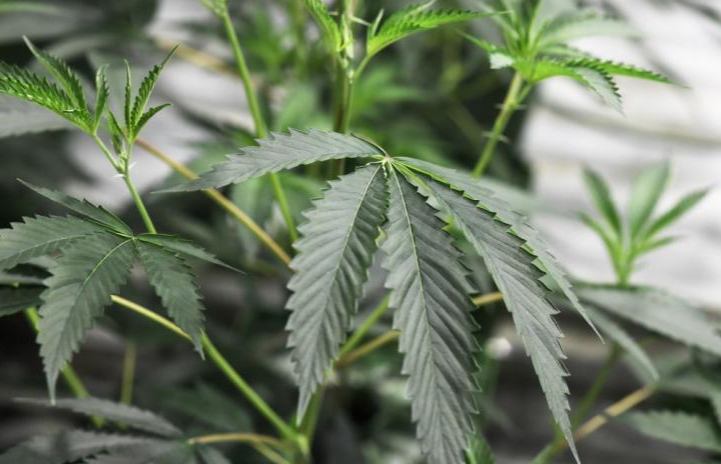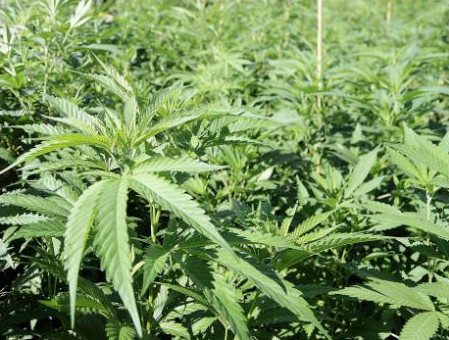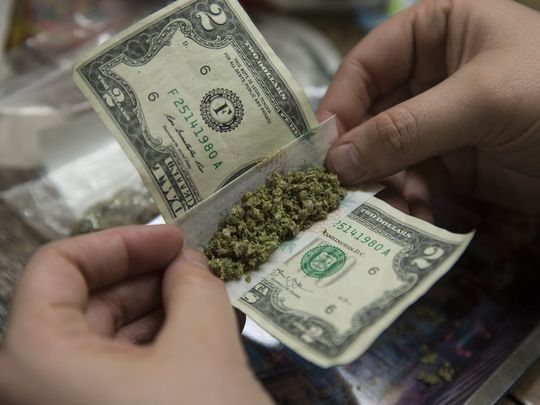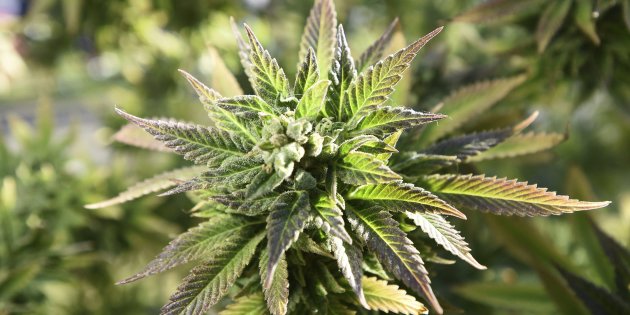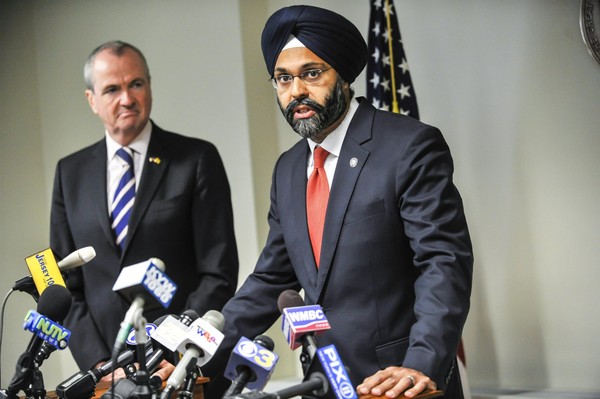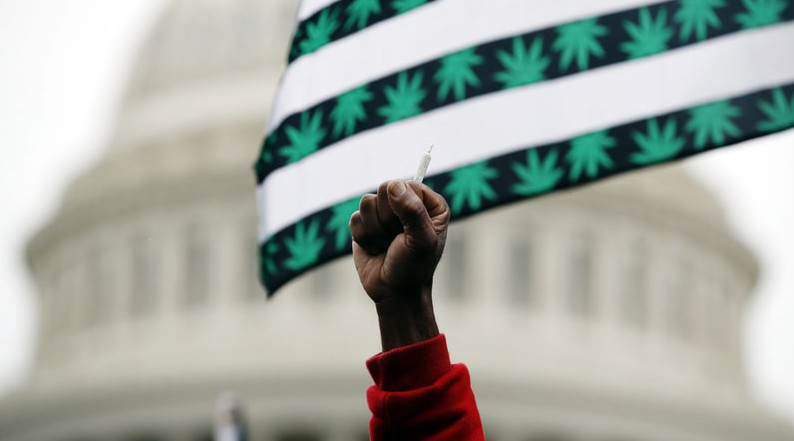Woe the teenager smoking weed.
That’s the view of many policymakers, social observers and others frowning upon efforts to legalize recreational marijuana use in New Jersey.
They worry in a weed-legal world, teens will be inundated with cannabis, leading to more young people using marijuana (though any pending bills still make weed off-limits to those under 21).
Further, they worry more weed use will mean worse overall health for teens.
Yet the research tells a more nuanced story.
Federal data show that marijuana use in Colorado, for example, dropped nearly 12 percent for people ages 12 to 17 between 2013-14 and 2014-15, to 18.35 percent. The first commercial sales of recreational pot in Colorado began Jan. 1, 2014. (The rate in New Jersey was 12.41 percent for 2014-15.)
Other weed-friendly states report similar drops.
On the question about teen health and marijuana, the answers aren’t so clear.
“There are studies that show harm,” said David Nathan, a psychiatrist based in Princeton. “There are studies that show no harm at all.”
Consider the teen brain on weed.
Research on whether marijuana can damage the brain and cause other health problems has produced mixed results.
Those mixed results apply to adults as well as adolescents and those emerging into adulthood, but it’s the use of weed by young people that raises special concern, given the critical nature of brain development in people up to the age of 25.
How much concern does the research warrant?
So much so that even advocates of legalization like Nathan warn against young people using marijuana recreationally despite the uneven research.
“Deterring underage use is important because there is enough evidence to convince us it’s a bad idea overall,” said Nathan, the founder and board president of Doctors For Cannabis Regulation and the father of two teenagers. “I volunteer many hours to change our policy on cannabis and I’m telling you adolescents have no business using it recreationally.”
The group advocates for the legalization, regulation and taxation of marijuana. For a video on research about marijuana’s effect on the brain, scroll above.
Young people should at least delay smoking marijuana as long as possible into their early-20s when the critical point of brain development ebbs, Nathan said.
Marijuana Policy Project, a Washington-based legalization advocacy group, agrees.
“A lot of research supports that marijuana could have a potential effect on brain development of people under 25,” said Morgan Fox, spokesman for the group. “But people 21 and over should be able to make that choice themselves.”
The discussion comes as New Jersey considers legalizing marijuana for adults over the age of 21.
Gov. Phil Murphy has touted the policy change, both as a candidate and in his new role — even as several communities throughout the state have voted to ban marijuana dispensaries from opening in their communities.
Morgan Thompson is dead set against marijuana use.
After starting ninth grade, the constant A’s she received throughout her grade school years became C’s and D’s.
A move to another high school nudged her back on track for a time, but one of the reasons she blames for the decline — smoking marijuana — continued.
And so did her lack of motivation.
“I think I definitely cut myself short because of that,” said Thompson, 27, the director of a program to help teens recovering from addictions in Union County. “I definitely experienced a lot of disorganization, confusion, not remembering things — all related to my use.”

Credit: app.com
While many studies confirm the sort of cognitive disturbances Thompson describes, there are studies that dismiss those effects.
There’s research that confirms that smoking marijuana for teens can lead to cognitive disturbances, even damage, as well as other health and social problems.
Indeed, some research shows no damage to the brain. As with many medical studies, it may take years to settle the question, experts say.
Assessing the research
In January 2017, the National Academies of Science, Engineering and Medicineattempted to clarify the issue of harm from marijuana and whether cannabis treatments work.
It issued a report after analyzing 10,000 scientific abstracts of marijuana research over the course of 10 years to draw conclusions about cannabis.
The researchers weeded through those studies to pick out the best. They also ranked the evidence for various risks and treatments for ailments: from “conclusive” to “substantial” to “moderate” to “limited” to “insubstantial” or “no evidence.”
There is, for example, conclusive or substantial evidence that cannabis treats chemotherapy-induced nausea and chronic pain in adults, according to the study.
There is also substantial evidence that marijuana can trigger schizophrenia.
Yet there is no evidence that a cannabis overdose can cause death, according to the study.
But when it comes to the effect on the brain, there is less certainty.
The study authors concluded there is moderate evidence of damage to learning, memory and attention from using marijuana recently — within 24 hours.
There is limited evidence that impairments to learning, memory, and attention in individuals who have stopped smoking cannabis.
But the study’s authors issued a warning, taking pains to discuss the critical point of cognitive development that adolescents undergo.
Legalization has led adolescents to perceive less harm from cannabis, according to the authors.
“We are still very much at the forefront of beginning to understand how cannabis impacts adolescent through adult cognitive health and broader psychosocial functioning,” the authors wrote.
Research and spin
Last April, the American College of Pediatricians gave a gloomy summary of the effects of teen marijuana use.
“Although increasing legalization of marijuana has contributed to the growing belief that marijuana is harmless, research documents the risk of use by youth are grave,” the group wrote. “Marijuana is addicting, has adverse effects upon the adolescent brain, is a risk for both cardiorespiratory disease and testicular cancer, and is associated with both psychiatric illness and negative social outcomes.”
The pediatricians called on parents to oppose legalization in states considering it, fearing that it will lead to greater access to marijuana for teens.
New Jersey Responsible Approaches to Marijuana Policy, an advocacy group against legalization, shares that view.
“Evidence demonstrates that marijuana — which has skyrocketed in average potency over the past decades — is addictive and harmful to the human brain, especially when used by adolescents,” Jeanette Hoffman, spokeswoman for the group, said in a prepared statement.
Some research has shown decreased intelligence, diminished memory, poor attention and less verbal ability among adolescents who smoke marijuana as well as lower motivation.
One study published in the Journal of Neuroscience in April 2014 found that casual, recreational marijuana use appears to cause changes in the size, shape and structure of brain regions that involve motivation, emotion and reward.
The study by researchers at Northwestern University Feinberg School of Medicine and Massachusetts General Hospital/Harvard Medical School, was significant in part because prior studies focused on heavy, habitual users.
The 40 study subjects, between 18 and 25 years old, smoked weed at least once a week. The more they smoked, the greater the changes. Researchers compared brain scans of users to those of control subjects.
But not all research points in the direction of damage.

Credit: app.com
A review of 69 marijuana research studies involving thousands of users that date back decades published in JAMA Psychiatry April 18 showed a significant decrease in cognitive functioning for teen and young adult users of cannabis, but not after they abstained for longer than 72 hours.
That suggests the harmful effects don’t last long.
Legalization
Concerns about young minds and marijuana use has worked its way into the debate on whether to legalize recreational marijuana in places like New Jersey for people 21 and older.
Opponents of legalization fear it will make illegal access for people under 21 easier.
But Paul Armentano, deputy director of NORML, National Organization for the Reform of Marijuana Laws, says regulating the drug to keep it out of the hands of young people is one of the group’s primary arguments for legalization.
“Under a criminal prohibition policy, no regulation exists over who can sell and produce marijuana, and then we have a situation where the black market fills that void. They don’t check ID, they’ll sell to anybody.”
Nathan, Fox and Armentano all say that educational programs in legalized states funded by marijuana tax revenue have helped drop teen use in those states.
Warning signs
Thompson oversees team of peer recovery mentors — young adults — at the Raymond J. Lesniak Experience, Strength and Hope Recovery High School in Roselle. There are nine students enrolled.
While the students there lack insight into how marijuana affects the developing brain, “most have expressed that marijuana use would bring them back” to the drug that led to their addictions.
Thompson says she doesn’t need to wait for the question of harm from marijuana to be scientifically settled.
She has enough personal experience and anecdotal evidence to know how damaging its effects are, she said.
“It’s important to point out that the future of our youth hangs in the balance,” Thompson said. “On a practical level, I see it every day.”
Nathan, the father of two teenagers, said he believes there’s a firm reason to be worried.
“If you’re waiting until college, you’re way better off than starting in high school. The earlier kids start and the more that they do it, the worse the effect on the developing brain,” he said.
“You have to get out of your adolescence before you can be confident that it’s not going to affect your brain development in some adverse way.”
Ken Serrano: 732-643-4029; kserrano@gannettnj.com
Credit: app.com



